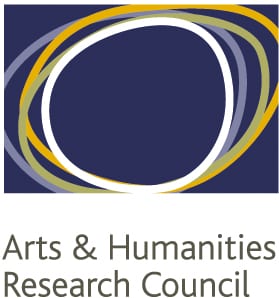 In line with other research councils, AHRC released its Delivery Plan for 2011 – 2015 [PDF] in late December 2010. These documents set out the research councils’ strategic priorities for the next four years – i.e. the anticipated duration of the current Coalition government – and in particular they outline how research councils will respond to the austerity measures laid out in last October’s Comprehensive Spending Review.
In line with other research councils, AHRC released its Delivery Plan for 2011 – 2015 [PDF] in late December 2010. These documents set out the research councils’ strategic priorities for the next four years – i.e. the anticipated duration of the current Coalition government – and in particular they outline how research councils will respond to the austerity measures laid out in last October’s Comprehensive Spending Review.
The AHRC is committed to funding researchers to enhance the excellence of this achievement across the range of the disciplines within its remit. As part of this delivery plan they will:
- Award longer and larger grants to proven centres of excellence in a number of HEIs, and promote consortia arrangements to support talent across the board and develop collaborative critical mass;
- Invest in the development of individuals and projects at all levels from postgraduates, through early career researchers, to projects of exceptional scope and importance through the award of Fellowships;
- Implement the new thematic programmes on which the AHRC has consulted over an extended period to stimulate discipline‐crossing research and respond to changing methodologies and opportunities;
- Sustain key areas of strategic national need (for example in modern languages) through these measures and through additional support as indicated below;
- Manage demand so that resource is used to maximum advantage for researchers, HEIs and the AHRC. AHRC will disseminate information on application success rates and then enter into strategic discussions with HEIs falling below the average to develop “self-management of demand” (p21). If this is ineffective, AHRC will introduce sanctions (e.g. institutional quotas). This, coupled with the focus on longer and larger grants mentioned above and the move towards funding key centres of excellence, will form the basis of AHRC’s demand management strategy;
- Focus on excellence and critical mass allowing increased autonomy through longer and larger awards thus extending the principles behind the BGP into other domains;
- Ensure complementarity with other funders, particularly the support offered in HEIs through QR funding, and by the British Academy (BA), to ensure provision for all stages and modes of research. The AHRC is distinct from BA in its support of postgraduate training and through its funding of strategic themes, interdisciplinary work and incentives for collaborative research;
- Scrutinise administrative systems to realise efficient and fair processes, using new techniques to award funding on a strategic basis (e.g. ‘sandpit‐style’ events);
- The AHRC will implement a revised strategy for knowledge exchange, with the creation of several Creative Economy “hubs” whose remit will be to develop research in partnership with the creative and cultural sectors, including commercial and public partners;
- AHRC international priorities focus on continued engagement with Europe through the HERA (Humanities in the European Research Area) partnership and the new Joint Programming Initiative in Cultural Heritage. North America is also a priority area in partnership with funders such as the National Science Foundation, National Endowment for the Humanities and the Canadian Social Sciences and Humanities Research Council. Finally India and South Asia are highlighted as priority areas from the point of view of a shared history and culture with the UK;
Cuts and reductions include:
- Closure of the Creative and Performing Arts Fellowships, Research Grants Practice‐led & Applied Route’ KT Fellowships and Catalyst Schemes;
- Ending the following centres and programmes: Landscape and Environment; Diasporas, Migration and Identity; Beyond Text; Design in the 21st Century; Religion and Society; Science and Heritage; Centre for the Evolution of Cultural Diversity; Centre for Law, Gender and Sexuality; Centre for Scottish and Irish Studies; Archaeology Data Service; Centre for Studies in Intellectual Property; Museums and Galleries Research Programme; EUROBABEL;
- Reductions to postgraduate funding including withdrawal from standalone Masters funding though some capacity for Masters support will remain through the 1+3 model of the BGP. AHRC have also ended the Open PhD Studentships funding schemes to focus on the Block Grant Partnerships route.
As highlighted previously on this blog, applicants will be unable to submit proposals to the AHRC through Je-S from 4pm on 28th January. Submission will re-open on 1st March.
The AHRC priority research areas highlighted in the Delivery Plan are:
National Capability and Health of Disciplines:
- Modern Languages
- Design
- Heritage
Connected Communities:
- Broadcasting and new virtual communities
- Regeneration through arts and culture
- Heritage, museums, libraries, theatres and galleries
- Values and concepts
- History
- Faith, multiculturism and diasporic communities
- Generations
Cross-Council and Multi-Disciplinary Priorities:
- Digital Economy
- Living with Environmental Change (LWEC)
- Global Uncertainties
- Lifelong Health and Wellbeing
- Science in Culture – supporting interdisciplinary within STEM subjects
Technology Strategy Board and the AHRC:
- Creative Economy: “we will identify opportunities to work with TSB on our Creative Economy strategy, seek engagement by them in the ‘hubs’, and deepen our engagement with the TSB Creative Industries KT Network. We will also explore initiatives to work with TSB on creative entrepreneurship”.
- Digital Economy: this includes the Centre of Copyright and New Business Models (AHRC’s commitment to this is £2M over the spending period), the existing DE hubs, and areas of 13 mutual interest in the Assisted Living Innovation Platform, especially research in design and ethics in delivering technological solutions for improved quality of life and wellbeing.
- KTPs: AHRC are currently the second largest Research Council sponsor of KTPs and will develop this portfolio further.
